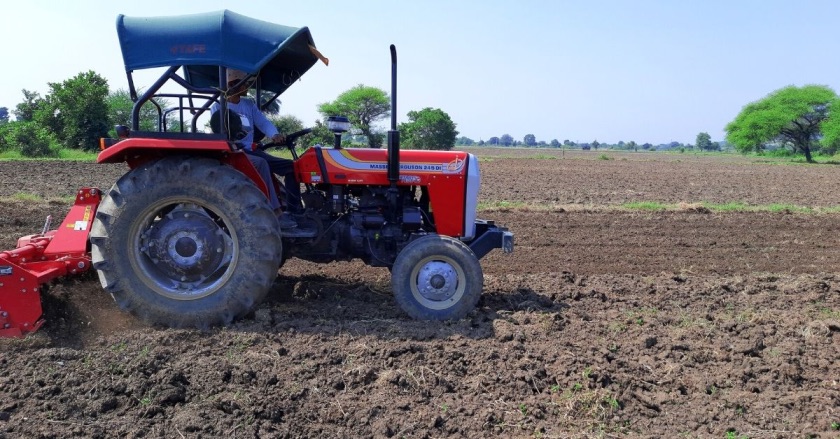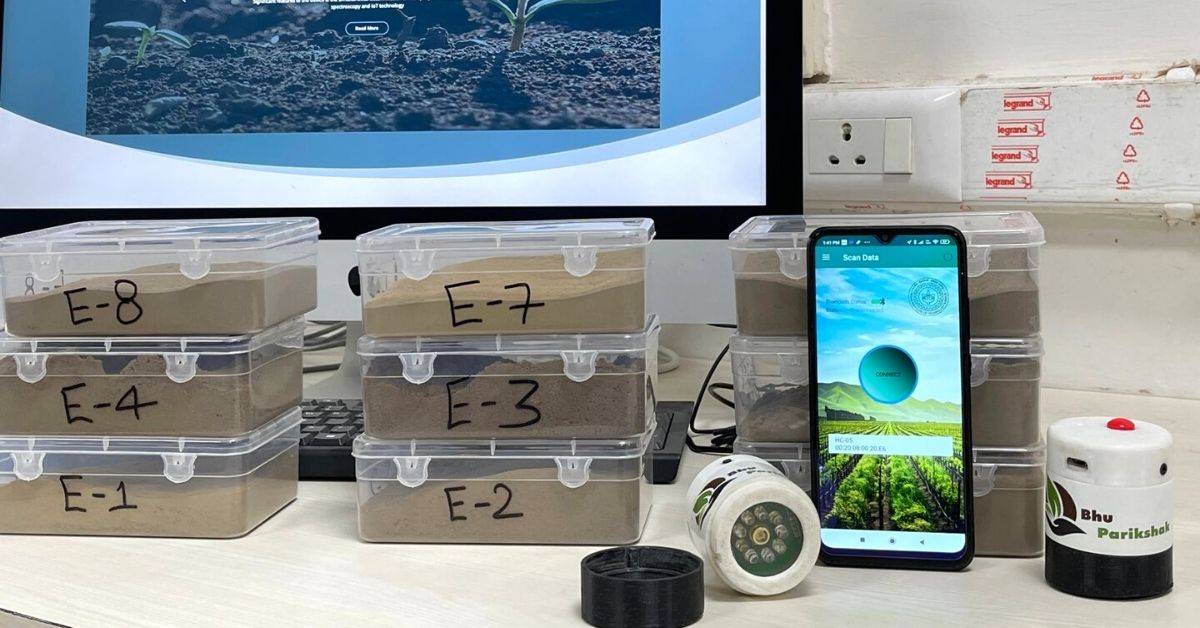Jayant Singh, professor at IIT-Kanpur’s chemical engineering department, belongs to a family that has professionally worked in the agriculture sector for two generations. His father and grandfather retired from the Indian Agricultural Research Institute (ICAR) and have contributed to the betterment of farmers for decades, he says.
He notes that talks at home always opened discussions on how their knowledge and skills could benefit the farmer fraternity.
In 2013-14, the Central government began laying emphasis on improving the soil quality in agriculture. The move motivated Jayant to conceive a convenient and easy technological tool for farmers to check soil health.
Christened as Bhu Parikshak (soil tester), the portable soil testing device is accessible with a smartphone which helps understand the nutrient value of the soil.
A cost-effective alternative

Conversing with The Better India over a phone call, Jayant says, “I started researching on the soil testing mechanism for farmers and learned it was an expensive and time-consuming process. Moreover, it required farmers from remote areas to travel long distances to reach the agriculture department to conduct soil testing. Often, the test results would arrive after weeks, causing a delay in the sowing process. Apart from the travel costs, the test cost Rs 150, and farmers would either be exhausted by the wait, or avoid conducting them entirely.”
Moreover, the existing technology requires experts and uses a complex set of chemicals to determine soil health.
Jayant says he felt the need to innovate a solution that would be easy-to-use, not require training for the user, and be environment friendly and economically feasible.
In 2015, he and three research students procured Corporate Social Responsibility (CSR) funding to materialise the concept.
The prototype was a complex device and required multiple inputs from the farmer on using water and membranes. Eventually, the team termed it redundant and started working on another model from scratch.
“We redesigned a new version in 2019 that required putting 5 grams of dry soil in the handheld unit and delivered results in 90 seconds. The device was tested for a year with soil samples across the country, including states like Uttar Pradesh, Karnataka, Bihar, Uttarakhand and others,” he says.
He adds that the success rate turned out to be satisfying at 80-95 per cent, and cost Rs 10 for a single test.
Explaining the functionality of the device, Jayant says, “The unique invention works on the concept of Near Infrared Spectroscopy technology that provides real-time soil analysis reports on smartphones connected to a mobile application called Bhu Parikshak, available on Google Play Store. The device determines six crucial soil parameters, such as nitrogen, phosphorus, potassium, organic carbon, clay contents, and cation exchange capacity,” he says.
The portable and wireless soil testing device requires 5 grams of dry soil sample to detect macronutrients present in the soil. The soil sample is introduced into the 5 cm long cylindrical shaped device connected with a smartphone through bluetooth. Once initiated, it starts analysing the sample for 90 seconds. After the analysis, the results appear on the screen.
Jayant says it also recommends the required dose of fertilisers for the field and crops. “The mobile application is user friendly as it interacts in local languages, thus making it convenient to use for a layman. Each device can test up to one lakh soil samples,” he adds.

Moreover, the device is connected to a cloud server, and the data collected will get uploaded on the same. “The step will ensure that the soil pattern and changes register across India in real-time,” he says.
He says the device will also enable farmers to decide on choosing crop cultivation. “Not all farmers need to buy the device. It can be collectively purchased or made available at the local fertiliser shop, where farmers can access the device as required,” Jayant says.
To make the device available to the farmers, IIT-Kanpur has collaborated with Agronxt, a company that offers products and services to help improve productivity and profitability of the farmers, agreeing to transfer the technology. The company will manufacture the device, eventually benefiting the farmers.
The professor claims that the device is much more affordable than its competitor. “The commercial devices in the segment cost about Rs 1 to Rs 1.5 lakh, but the new innovative device can cost as less as Rs 50. However, the company will determine the final market price of the product,” he says.
Jayant is confident that his device will benefit farmers across India.
Edited by Divya Sethu
No comments:
Post a Comment